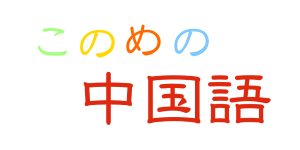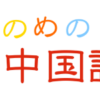【HSK6 Grammar】What is the difference between “极端” and “极度”? Let’s learn high-level Chinese with plain explanation!!
Hello, everyone. I’m Conomet.
Do you enjoy studying Chinese? I really enjoy it but its difficulty gives me a headache. (And studying English also gives me a headache…)
If your Chinese level has progressed and reached the HSK6-level, you may find it difficult even for relatively simple words.
Just like “How do I use this word?" or “Is this the right way to use the word?"
In particular, many people may be worried about grammar problems.
In this article, I will explain the difference between “极端
jíduān" and “极度
jídù" in such a usage problem!
Let’s move on.
Common points
Let’s first check some common points before looking at the differences between the two words.
“极端 jíduān” and “极度 jídù” both represent “extremely."
Sometimes these can be replaced in the text.
For example,
- 极端/极度腐败。=rotten to the core.
- 极端/极度困难。=exceedingly difficult.
- 感到极端/极度疲劳。=extremely tired.
In these cases, “极端” and “极度” are exchangeable.
The greatest commonality
The greatest commonality between “极端” and “极度” is that “both words have usage as adverbs”.
Looking at the previous sentence, you can see that each of them modifies the word immediately after it.
(“腐败", “困难” and “疲劳” are modified to the word.)
Differences
Now, I’d like to move on to the main topic, the difference between “极端” and “极度”.
There are mainly three differences between “极端” and “极度”
Let’s check it out below!
Adverb
The first difference is about “adverbs“!
Both “极端” and “极度” can be used as adverbs, but there are some differences.
It is as follows specifically.
极端:In many cases, words with a negative meaning are modified.
极度:Words with non-negative meanings can also be modified.
Each word usually modifies a polysyllabic word!
Let’s look at example sentences!
Example
- 他感到极端/极度疲劳。=He is extremely tired.
- 他极度兴奋,一夜没睡着。=He was so elated that he couldn’t sleep all night.
Noun
The second difference is about “nouns“!
“极端" can be used as a noun, but “极度" can’t be used as a noun!
极端:Can be used as a noun.
极度:Cannot be used as a noun.
Let’s look at an example sentence!
Example
- 从一个极端走到另一个极端。=go from one extreme to the other.
Adjective
The third difference is about “adjectives“!
“极端" can be used as an adjective, but “极度" can’t be used as an adjective!
极端:Can be used as an adjective.
极度:Can’t be used as an adjective.
Let’s look at example sentences!
Example
- 你的话很极端。=Your story is extreme.
- 这种观点太极端了。=This view is too extreme.
Conclusion
The conclusion is as follows!!
| 极端 | 极度 | |
|---|---|---|
| Adverb | words with a negative meaning are modified (meaning: exceedingly; extremely) | words with non-negative meanings can also be modified
(meaning: extremely) |
| Noun | OK (meaning: extreme; extremity) | (There is no such usage.) |
| Adjective | OK (meaning:extreme; absolute) | (There is no such usage.) |
How was it?
Even for advanced Chinese learners, the difference between “极端” and “极度” might not be readily apparent but it should be surprisingly easy after understanding.
This difference may not be a problem when reading Chinese, but it can be annoying when writing.
Take this opportunity to check out these differences!
Have a nice studying!!



Discussion
New Comments
No comments yet. Be the first one!